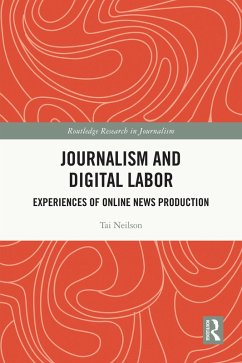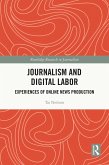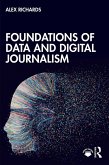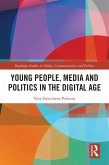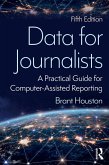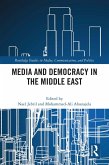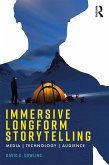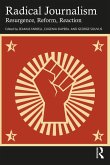Dieser Download kann aus rechtlichen Gründen nur mit Rechnungsadresse in A, B, BG, CY, CZ, D, DK, EW, E, FIN, F, GR, HR, H, IRL, I, LT, L, LR, M, NL, PL, P, R, S, SLO, SK ausgeliefert werden.
Hinweis: Dieser Artikel kann nur an eine deutsche Lieferadresse ausgeliefert werden.
- Vincent Mosco, Queen's University, Canada, and Fudan University, China
"Tai Neilson has succeeded in bringing together political economy, materialistic and cultural studies approaches on the work of journalists in New Zealand and the United States. This results in a rich palette of resistance as well as exploitation, of experimentation as much as standardisation, of love and suffering for the job. This book marks an important step in the struggle for better working conditions and quality journalism."
- Mark Deuze, University of Amsterdam, Netherlands
"All journalists are today digital workers operating in media organisations that have experienced the structural transformation towards digital capitalism. Tai Neilson's book is an excellent study of digital journalists' labour in digital capitalism. He shows how the digitalisation of journalism has in the context of capitalism been confronted by the intensification of exploitation, the reification of journalists' work, and the ideology of entrepreneurship. This book is an essential work and a must-read for anyone who cares about a democratic public sphere and wants to understand digital journalism."
- Christian Fuchs, University of Westminster, UK
"One of the challenges in restoring trust in news is re-establishing that there is value in the work of professional journalists. Through detailed interviews with working journalists about the impacts of digital platforms, Tai Neilson identifies new ways to understand the invisible labor of news work, and how journalist can build a future that goes beyond "business as usual" in a time of great disruption."
- Terry Flew, University of Sydney, Australia
"Drawing from careful ethnographic research and a diverse range of critical theory, Tai Neilson expertly elucidates the politics of digital news work-both the exploitation of journalists and the potential for resistance. It is a devastating portrait, but also a hopeful one. I urge students and scholars of digital labor, political economy, and journalism studies-as well as concerned citizens who care about the future of media and democracy-to read this important book."
- Victor Pickard, University of Pennsylvania, USA

